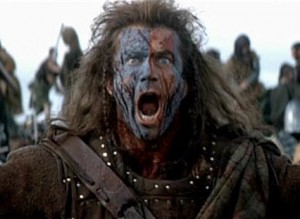Seeing bad things happen to other people is scary. One way to respond to this is to blame the victim—to look for some reason why it happened to them. But there’s another common response, according to a new study published in Psychological Science, a journal of the Association for Psychological Science. The researchers found that people who believe in justice in the world also believe that a tragedy gives the victim’s life more meaning. [continue reading…]
December 2010
Results Challenge Previous Findings on Unemployment and Mental Health
Losing a job is a profoundly distressing experience, but the unemployed may be more resilient than previously believed – the vast majority eventually end up as satisfied with life as they were before they lost their jobs, according to a new analysis published by the American Psychological Association. [continue reading…]
 It’s been called the “warrior gene” – a mutation that seems to make people more aggressive. Now researchers report that people with this gene may not be aggressive, just better at spotting their own interests. Curious? Continue reading
It’s been called the “warrior gene” – a mutation that seems to make people more aggressive. Now researchers report that people with this gene may not be aggressive, just better at spotting their own interests. Curious? Continue reading
Source: New Scientist
- Americans are living longer.
- The influx of Americans entering their senior years, coupled with a declining percentage of workers in the prime earning years, will put increasing pressure upon the benefits and sustainability of the Social Security and Medicare programs as well as other social safety nets programs directed at the elderly.
- Economic trends show that Americans have not been accumulating adequate savings for retirement.
Nearly half of all Americans between the ages of 60 and 90 will encounter at least one year of poverty or near poverty, says a recent study by Mark R. Rank, PhD, the Herbert S. Hadley Professor of Social Work at the Brown School at Washington University in St. Louis.
“Of course, this risk is not evenly distributed across the population,” Rank says. “One of the most drastic economic divides is race.”
Rank found that although 32.7 percent of white older Americans will experience at least one year below the official poverty line, the corresponding percentage for black older Americans was double that at 64.6 percent. [continue reading…]
